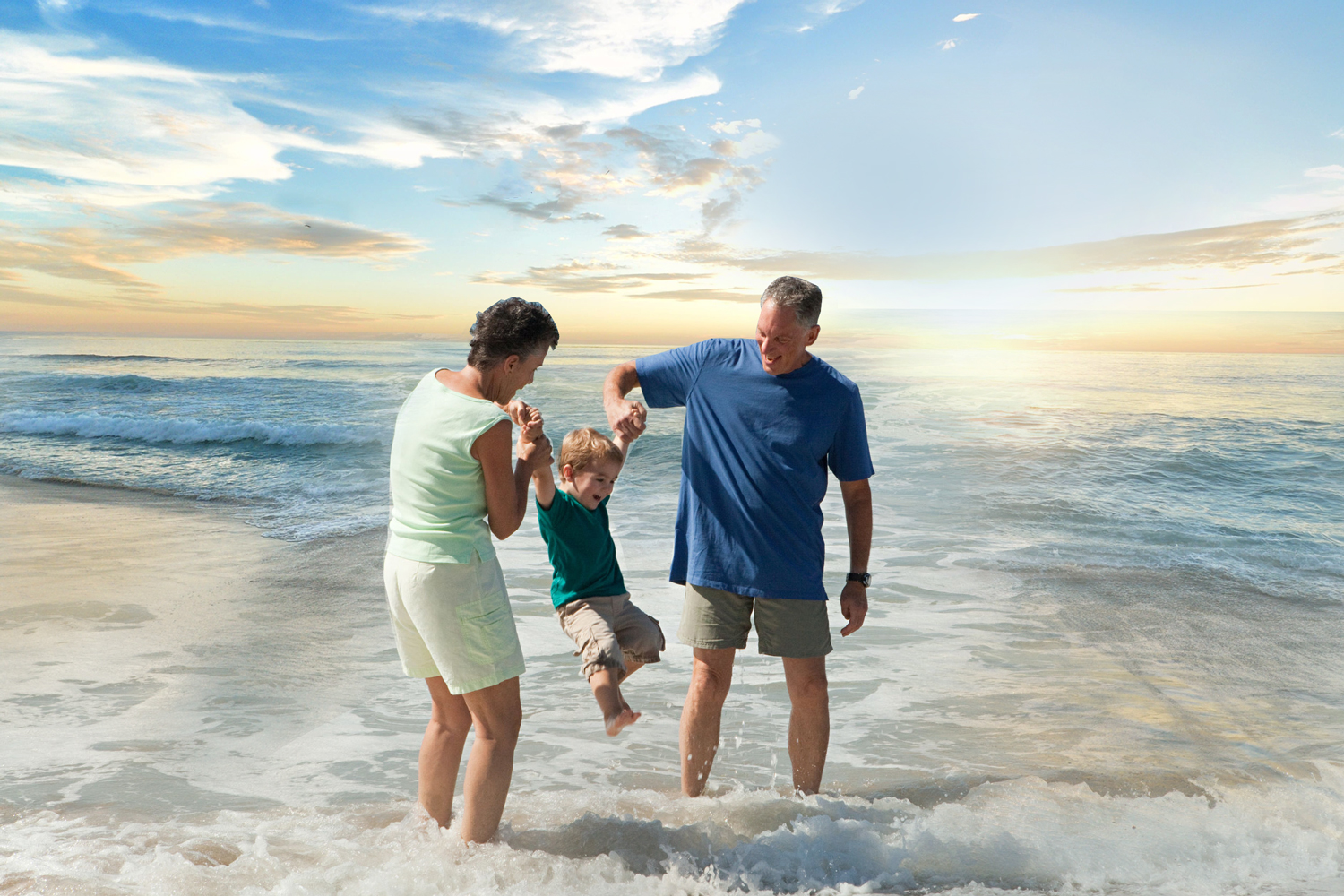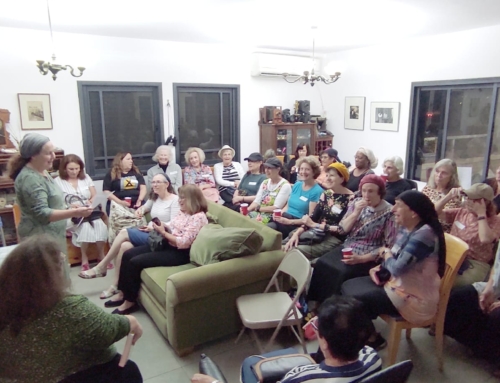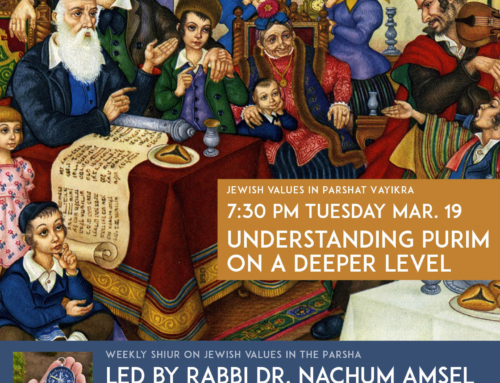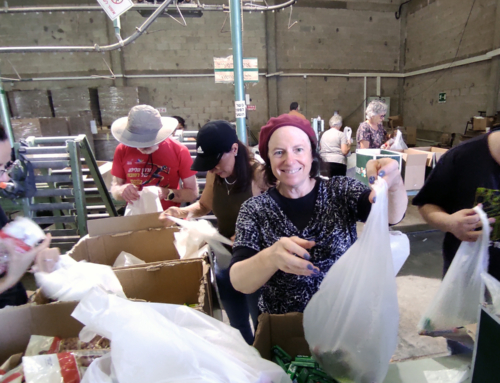When we made Aliyah (thank you NBN!), we chose the wonderful community of Rehovot as our home. It had great schools for our young children as well as youth groups, music lessons and more. But as they grew and went off to the army and university, we decided to look for another community to move to, a place that offered us the features of a community that met the needs of a couple in our 60s. We looked at various aspects of what was important to us in a city and community. We also looked to the future and decided that although we are healthy now, there will come a time where hills and other physical challenges might present a problem. My wife and I are both working and we saw our move, not necessarily as a place to retire to, but more like a “rehearsal for retirement” (to quote a Phil Ochs song). We compiled a list, which I am sharing with you. Everyone’s calculations of what is important to them are different. I am sharing the list that we compiled that helped us choose our new community.
With so many amazing English speaking communities in Israel, how does a 50+ English speaking individual or couple choose where to live? There are so many options, but when you deep dive into the various communities, the list becomes shorter. What factors are important for people in this age range? Whether a person is retired or thinking to the future, many look for a city that offers a unique blend of features:
- Community of other 50+ English speakers
- On the train line
- Affordable housing options
- Not an Anglo bubble
- Pleasant weather
- Flat terrain
- Excellent healthcare
- Solid public transportation
- Places to visit, activities
- Shopping options
- Bike lanes
- Hiking paths
- Natural beauty
- Mix of Dati and Chiloni
- Accessible to friends, children and grandchildren
- Anglo-friendly Shuls
- Volunteer opportunities
As the population in the center (merkaz) of the country grew and the high-tech sector offered super attractive jobs, the center of the country became the place to live. It offered convenient access to employment centers, activities and an active housing market. But with the popularity and growth of the center came super high real estate prices that made communities out of reach for young families and retirees. Cities adjacent to Tel Aviv/Ramat Gan/Givatayim also started to rise and buyers, looking for reasonable housing, looked further away. The growth of the train service helped make cities that were within an hour’s train ride of Tel Aviv more accessible and offered young families and retired people a chance for some open spaces and slower pace. Covid was another factor that normalized work from home or hybrid, enabling employees to live a bit further away from the center, but at the same time gaining less expensive housing and more open spaces.
Today, one of the most attractive cities for 50+ Anglos is Ashkelon. Within the Ashkelon English speaking community, some people refer to this amazing city as a secret. Here’s why.
Why Ashkelon?
 Ashkelon has not been on the radar screens of many English speakers until recently. The seaside community had a lot of private homes and very few apartments, but over the past 10-15 years, thousands of apartment units were built. In fact, the plan is for Ashkelon to become Israel’s sixth largest city. Recently, Ashkelon was named as the leading city in real estate sales, and based on the plethora of cranes people see when they visit Ashkelon, the city is continuing to grow.
Ashkelon has not been on the radar screens of many English speakers until recently. The seaside community had a lot of private homes and very few apartments, but over the past 10-15 years, thousands of apartment units were built. In fact, the plan is for Ashkelon to become Israel’s sixth largest city. Recently, Ashkelon was named as the leading city in real estate sales, and based on the plethora of cranes people see when they visit Ashkelon, the city is continuing to grow.
Geographically, Ashkelon is almost the same size as Tel Aviv, but has about one quarter of the population. That means the wide streets, with very few traffic lights (the city prefers traffic circles), can accommodate a lot more people. Apartment prices and rentals are still lower than other cities in the center. When you ask an Anglo living in Ashkelon why they chose Ashkelon, quite often you hear that they came to live near the sea and because it was affordable.
The city is serviced by two train lines, buses and just opened an entrance on the northern side of the city that puts Tel Aviv within a 45-minute drive of Ashkelon.
Pleasant Weather
 Much of the center of the country is located on the coastal plain, which means mild winters and hot and sometimes humid summers. Ashkelon has warm winters, although the closer you are to the sea, the colder it seems, because of the wind that comes off the Mediterranean. Temperature rises in the summer months, but the sea breeze keeps the weather very pleasant. Israel has many microclimates and when it is raining or cold in one location, it might be sunny and warm in another. Ashkelon receives less rainfall than Rehovot, which is a 40-minute drive away. The hottest months are July and August, but with the breeze, the heat is tolerable. Most apartments are equipped with air conditioners, but some residents don’t find the need to use AC, just turning it on for the hottest days.
Much of the center of the country is located on the coastal plain, which means mild winters and hot and sometimes humid summers. Ashkelon has warm winters, although the closer you are to the sea, the colder it seems, because of the wind that comes off the Mediterranean. Temperature rises in the summer months, but the sea breeze keeps the weather very pleasant. Israel has many microclimates and when it is raining or cold in one location, it might be sunny and warm in another. Ashkelon receives less rainfall than Rehovot, which is a 40-minute drive away. The hottest months are July and August, but with the breeze, the heat is tolerable. Most apartments are equipped with air conditioners, but some residents don’t find the need to use AC, just turning it on for the hottest days.
The City
Ashkelon is Israel’s westernmost city, where some of the country’s most attractive beaches are found. Being a seaside city, it is relatively flat, making walking and biking a great activity for residents. The Tayelet (boardwalk) runs for several miles along the seafront and is a great way to take a leisurely walk or bike ride, while enjoying the beautiful sea views. As the sun starts to set, you can find people walking or driving to the seaside to watch the magnificent sunsets.
The city, unlike most cities in Israel, does not have a single city center. It is more like a group of villages that became connected, each with shopping areas. Some residents choose not to buy cars and instead rely on public transportation or walk to the stores that are close by.
Affordable Housing
 Whether you are thinking of buying an apartment, a private house or renting an apartment, there are many choices. While Anglos are spread out across the city, most 50+ have chosen to live in the Marina district and Afridar, specifically on the western side of Afridar, which is a short distance to the sea and the Marina area a block away. Typically, 50+ Anglos live in apartments on Yefe Nof, Modiin, HaTayasim, HaShayetet, Pridan and Carmel streets, putting them five-minutes (or less) to the beach.
Whether you are thinking of buying an apartment, a private house or renting an apartment, there are many choices. While Anglos are spread out across the city, most 50+ have chosen to live in the Marina district and Afridar, specifically on the western side of Afridar, which is a short distance to the sea and the Marina area a block away. Typically, 50+ Anglos live in apartments on Yefe Nof, Modiin, HaTayasim, HaShayetet, Pridan and Carmel streets, putting them five-minutes (or less) to the beach.
Purchase prices can be hundreds of thousands of shekels less than similar apartments in the center. A resale three bedroom apartment (four room) with parking and Mamad (shelter) starts at about 1,750,000 ₪ and goes up, depending if it has a sea view, age of building, renovated and proximity to the beach. A frontline 3-bedroom apartment with a sea view starts at about 2,700,000 ₪.
 Rents typically start at 4,500 ₪ and go up to 7,000 ₪, depending on size, age of building, renovated and if it has a sea view. Every renter (and owner) also pays a vaad bayit (maintenance fee), as well as municipal taxes (very reasonable in Ashkelon), electricity, water and gas.
Rents typically start at 4,500 ₪ and go up to 7,000 ₪, depending on size, age of building, renovated and if it has a sea view. Every renter (and owner) also pays a vaad bayit (maintenance fee), as well as municipal taxes (very reasonable in Ashkelon), electricity, water and gas.
Why are apartments so affordable in Ashkelon? While new construction is limited in many cities in the center of the country, Ashkelon, a city with almost the same geographic footprint of Tel Aviv, with one quarter the population, has a lot of government owned land. When prices across the country started to soar in 2009-2010, the government released large amounts of land in Ashkelon for construction, thus making housing very affordable and started a mass influx of residents.
Shuls
 Within Afridar there are a number of shuls to suit most styles. Ashkelon was primarily an Eidot HaMizrach city, so the shuls are almost all Eidot HaMizrach shuls catering to Moroccan, Libyan and other styles of davening.
Within Afridar there are a number of shuls to suit most styles. Ashkelon was primarily an Eidot HaMizrach city, so the shuls are almost all Eidot HaMizrach shuls catering to Moroccan, Libyan and other styles of davening.
The Central Synagogue of Afidar is a very large Ashkenazi shul that was built by the South African community and still has Anglo members. Closer to the Marina area is Beit Yitzchak David, a small, but growing Ashkenazi shul that is home to many Anglos from the USA, Canada, Britain and South Africa. CHABAD is very strong in Ashkelon and the closest CHABAD house in Afridar is Beit Moshe and Chanah. Kehillat Netzach Israel is a Masorti (Conservative) congregation with a very popular rabbi and many family oriented programs.
Ashkelon English-Speaking Community
While Ashkelon’s Anglo community is smaller than cities of Ra’anana, Beit Shemesh, Rehovot and Jerusalem, it is attracting 50+ Anglos looking for affordable seaside community near the center. A number of Anglos purchased vacation or weekend properties in Ashkelon and found that when the kids left home or they were considering retirement, they made the permanent move to Ashkelon. The mix is American, Canadian, British, Australian and South African.
One of the key tools that brings the English speaking community in touch with each other is the Ashkelon Anglo Community WhatsApp group. The group, run by Stephen Epstein, and it is the largest and most active community WhatsApp group for English speakers in the city. Whether you call it an intentional community, unintentional or simply the glue that connects many of the English speakers of Ashkelon together, the group members are involved with meal trains for Ashkelon residents and helping each other when needed. When the community went through COVID-19 lockdowns and the 2021 war with Gaza, the group was the largest “town square” for English speakers to share information and support each other. During the Swords of Iron war, members of the community stepped up and made meals and fed hundreds of staff and soldiers that came through the local hospital. A member of the community, a former chef, led a group of volunteers in making hundreds of schnitzel sandwiches for soldiers going into Gaza.
On a day-to-day basis, members share information and ideas with each other about events, restaurants, doctors, shopping. Political discussions are not allowed so as to ensure all members feel comfortable. While the group is open to Ashkelon residents, some seniors in the city are not connected via WhatsApp, so their children become members to help their senior parents connect with others in the city and learn about events.
Healthcare Services
One of the considerations people make in choosing a city, especially someone who is a bit older is what is the medical care like in the city. Ashkelon is serviced by all four Kupot (HMOs) and has a major hospital within the city. Barzilai Medical Center is a 617-bed hospital serving a population of 500,000. It has more than 100,000 admissions annually and is well regarded by residents. For services unavailable in Ashkelon, Ashdod, a 20 minute drive away, has even more facilities.
Leisure
 Residents never seem to run out of things to do. When not hanging out at the beach, many residents flock towards the marina, with its range of restaurants, shops and activities. The Ashkelon National Park is free for Ashkelon residents and is home to a number of archeological attractions that are unique to the area.
Residents never seem to run out of things to do. When not hanging out at the beach, many residents flock towards the marina, with its range of restaurants, shops and activities. The Ashkelon National Park is free for Ashkelon residents and is home to a number of archeological attractions that are unique to the area.
Because the city is on the coast and pretty flat terrain, lots of people use the available bike paths and boardwalk to exercise. The Iriya (municipality) arranges different festivals that attract residents and visitors to the city. Herzl Street, the historic Migdal neighborhood, is pedestrian only, and offers visitors a range of small shops without noisy car traffic.
Delilah Beach has two skate parks (different skill levels), picnic areas, children’s play areas, climbing wall and zip line and there are free exercise equipment in public parks.
If you are making Aliyah to Ashkelon, let us know when you are arriving and details of where you will be staying and a volunteer from Ashkelon 123 will bring a pizza to your apartment for your first dinner!
Please note: This is a brief description of life in the amazing city of Ashkelon. For more details, contact Stephen Epstein, who gives tours of the city and can help you decide if Ashkelon is a good match for for you.
Find out more about Ashkelon by joining the largest English Speaking Ashkelon Facebook group.




